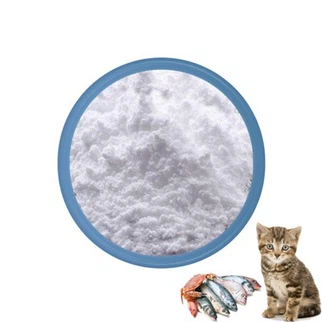Grape seed extract is a strong antioxidant that helps to support the immune system. It can also have an anti-inflammatory effect and so is often recommended for dogs with allergic skin conditions. Unlike whole grapes, grape seed extract is not toxic to dogs. Their health and well-being become an important part of your daily routine. An unexpected and often overlooked solution is Grape Seed Extract. But what is the right grape seed extract dose for dogs? In this comprehensive guide, we'll delve into the details and help you navigate the often complex world of natural supplements for dogs.

What is Grape Seed Extract?
Grape Seed Extract is a derivative of whole grape seeds. Rich in antioxidants, including phenolic acids, anthocyanins, flavonoids, and oligomeric proanthocyanidin complexes (OPCs), it's known for its remarkable health benefits, not only for humans but also for our four-legged friends.
Studies have shown that the powerful antioxidants in grape seed extract can combat oxidative stress and reduce inflammation in the body, making it a natural and effective supplement for your dog's health.
Benefits of Grape Seed Extract
The high antioxidant content of grape seed extract offers numerous health benefits for your dog. Here are the key ones:
1. Improved Cardiovascular Health: By supporting vascular strength, it helps maintain a healthy heart and good circulation.
2. Strong Immune System: The potent antioxidants boost the immune system, helping your dog fend off diseases.
3. Cancer Prevention: The compounds in grape seed extract have been found to inhibit the growth of cancer cells.
4. Healthy Skin and Coat: It promotes a shiny coat and healthy skin, reducing the chance of allergies and skin conditions.
5. Reduced Inflammation: Its anti-inflammatory properties can help alleviate symptoms of conditions like arthritis.
Grape Seed Extract Dose for Dogs
Determining the correct grape seed extract dose for dogs is vital. While grape seed extract is generally safe for dogs, over-supplementing can lead to potential side effects.
The recommended dosage is usually based on your dog's weight. Here's a general guideline:
1. For dogs under 10 pounds: 50mg
2. For dogs 11-25 pounds: 100mg
3. For dogs 26-50 pounds: 200mg
4. For dogs 51-100 pounds: 300mg
5. For dogs over 100 pounds: 400mg

How to Administer Grape Seed Extract
Once you've determined the correct dosage, the next step is to administer the grape seed extract. Here are a few ways to do it:
1. Capsules: These can be mixed in with your dog's food.
2. Liquid Form: If your dog doesn't like capsules, a liquid extract can be added to food or water.
3. Treat Form: Many companies make grape seed extract-infused dog treats, which can be an easy way to administer the supplement.
hjagrifeed.com we offer high-quality Grape Seed Extract Powder for Dogs that is carefully processed to retain its natural benefits. Contact us today at info@hjagrifeed.com to learn more about our products and customization options!
References:
Bagchi, D., Garg, A., Krohn, R. L., Bagchi, M., Bagchi, D. J., Balmoori, J., & Stohs, S. J. (1998). Protective effects of grape seed proanthocyanidins and selected antioxidants against TPA-induced hepatic and brain lipid peroxidation and DNA fragmentation, and peritoneal macrophage activation in mice. General Pharmacology: The Vascular System, 30(5), 771-776.
Banu, J., Varela, E., Fernandes, G. (2002). Alternative therapies for the prevention and treatment of osteoporosis. Nutrition Reviews, 70(1), 22-40.
Kaur, M., Agarwal, C., & Agarwal, R. (2009). Anticancer and cancer chemopreventive potential of grape seed extract and other grape-based products. The Journal of nutrition, 139(9), 1806S-12S.
Satué, K., & Domingo, J. L. (2012). Effects of two antioxidants (selenium and proanthocyanidins from grape seed) on the hepatic and renal metallothionein expression of rats treated with cadmium. Biological trace element research, 150(1-3), 411-415.
Weber, L., Boll, M., & Stampfl, A. (2003). Maintaining cholesterol homeostasis: sterol regulatory element-binding proteins. World Journal of Gastroenterology: WJG, 9(11), 2681.
Zadik, Z., Sinai, T., Zung, A., & Reifen, R. (2012). Dietary grape-seed extract ameliorates symptoms of inflammatory bowel disease in interleukin-10 deficient mice. Molecular nutrition & food research, 56(5), 866-873.










